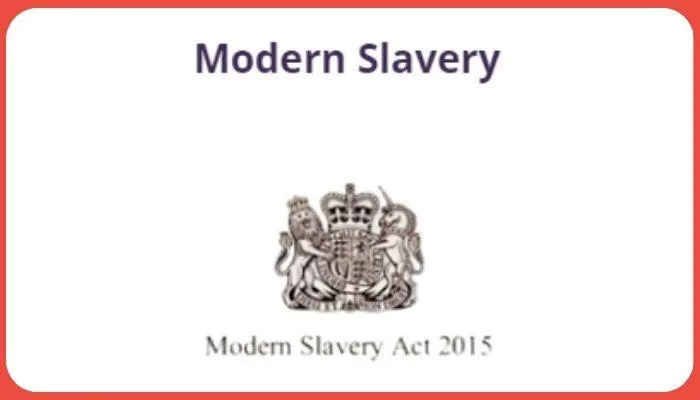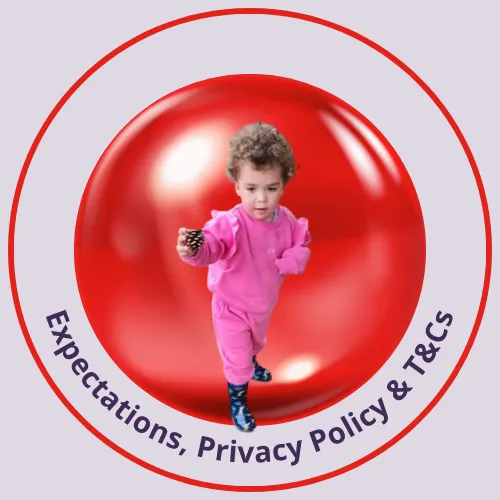Every child's well-being matters.
Types of Abuse Articles
Quick Access
Abuse of Authority
Abuse of Discretion
Abuse of Power
Behavioural Indications
Breast Ironing
County Lines
Cultural Differences (Physical Abuse)
Domestic Abuse
Economic Abuse
Emotional Signs
Exposure to Substance Abuse
Failure to Thrive
Female Genital Mutilation (FGM)
Forced Marriage
Hate Crimes & Targeted Harassment
Impact of Domestic Violence
Impact of Environment
Impact on Development
Institutional Abuse
Isolation
Modern Slavery
Neglect
Online Abuse
Parental Behaviours
Physical Abuse
Radicalisation
Religious Abuse
Restraint
Sexual Abuse
Types of Abuse
Witnessing Domestic Abuse

What is Modern Slavery?
Custom HTML/CSS/JAVASCRIPT
Modern slavery is a global crisis, affecting millions despite widespread condemnation and legal prohibitions. It encompasses various forms of severe exploitation, all denying people the freedom to choose or leave their circumstances. Understanding modern slavery's scope, impact, and ways to counter it is essential to protect vulnerable individuals and promote human rights.
What is Modern Slavery?
Modern slavery includes various forms of coercion, deception, and exploitation, where individuals are forced into work, marriage, or other forms of servitude. Human trafficking is often involved: where people are transported or harboured under force or fraud for exploitation, often in labour or sexual servitude.
Forced labour is where vulnerable individuals, particularly migrants, are coerced to work under harmful conditions without fair wages or freedom to leave. Additionally, debt bondage traps people in endless work to repay unmanageable debts, often under exploitative terms, while child labour, forced marriage, and domestic servitude further exemplify the harrowing realities of modern slavery.
The Global Impact of Modern Slavery
Modern slavery has devastating global repercussions. Approximately 40 million people are estimated to be affected, with about 25 million in forced labour and 15 million in forced marriage. Economically, the exploitation in modern slavery fuels profits in industries like agriculture and mining, where vulnerable people are exploited to minimise costs.
Socially, modern slavery disproportionately affects those from marginalised backgrounds, including migrants, women, and children, who are often targeted due to poverty, lack of education, and limited legal protection.
Conflict, climate change, and natural disasters further heighten these vulnerabilities, trapping more people in situations where they are at risk of exploitation.
Addressing Modern Slavery
Ending modern slavery requires a multi-layered approach. First, strengthening legal frameworks is critical.
Laws like the UK’s Modern Slavery Act of 2015 have set a precedent for tackling slavery, prosecuting perpetrators, and safeguarding victims.
Second, raising awareness through public education helps people recognise signs of slavery, fostering communities better equipped to report suspicious activities.
Lastly, corporate responsibility is crucial. Companies must take accountability for fair and transparent supply chains, ensuring they don’t unknowingly or knowingly benefit from forced labour. Ethical sourcing and transparency play a vital role in reducing slavery within global supply networks.
How Early Years Settings Can Safeguard Staff and Families
Early years settings have a unique role in safeguarding both staff and families against the risks associated with modern slavery.
First, by implementing regular training, early childhood staff can learn to recognise indicators of exploitation, equipping them to spot any concerning signs among families or community members.
Second, policies that prioritise staff well-being, ensure fair wages, and foster an inclusive work environment can protect employees from exploitative conditions.
Finally, community partnerships with local support organisations or law enforcement agencies can provide valuable resources and intervention measures.
By creating a safe, vigilant environment, early years settings contribute to broader efforts to prevent and identify instances of modern slavery.
AUTHOR:- Iona has nearly 10 years of experience supporting nurseries and childminders in curriculum planning, leadership, and safeguarding. Her writing is informed by public information and sector insight, aiming to provide accessible, practical support for professionals working with children. She is part of the On the Button team, helping deliver Well-being, Safeguarding and Complaint Management Software that empowers practitioners to identify concerns early and act confidently.
On the Button provides innovative software tailored to the needs of the early years sector, with a strong focus on EYFS well-being and early years safeguarding. Our tools help senior practitioners to confidently track concerns, maintain robust records, and respond effectively — all while meeting statutory guidance. From early years complaint management to team-wide safeguarding alerts, our platform puts children's safety and emotional health first.
Quick Access
Abuse of Authority
Abuse of Discretion
Abuse of Power
Behavioural Indications
Breast Ironing
County Lines
Cultural Differences (Physical Abuse)
Domestic Abuse
Economic Abuse
Emotional Signs
Exposure to Substance Abuse
Failure to Thrive
Female Genital Mutilation (FGM)
Forced Marriage
Hate Crimes & Targeted Harassment
Impact of Domestic Violence
Impact of Environment
Impact on Development
Institutional Abuse
Isolation
Modern Slavery
Neglect
Online Abuse
Parental Behaviours
Physical Abuse
Radicalisation
Religious Abuse
Restraint
Sexual Abuse
Types of Abuse
Witnessing Domestic Abuse

What is Modern Slavery?
Custom HTML/CSS/JAVASCRIPT
Modern slavery is a global crisis, affecting millions despite widespread condemnation and legal prohibitions. It encompasses various forms of severe exploitation, all denying people the freedom to choose or leave their circumstances. Understanding modern slavery's scope, impact, and ways to counter it is essential to protect vulnerable individuals and promote human rights.
What is Modern Slavery?
Modern slavery includes various forms of coercion, deception, and exploitation, where individuals are forced into work, marriage, or other forms of servitude. Human trafficking is often involved: where people are transported or harboured under force or fraud for exploitation, often in labour or sexual servitude.
Forced labour is where vulnerable individuals, particularly migrants, are coerced to work under harmful conditions without fair wages or freedom to leave. Additionally, debt bondage traps people in endless work to repay unmanageable debts, often under exploitative terms, while child labour, forced marriage, and domestic servitude further exemplify the harrowing realities of modern slavery.
The Global Impact of Modern Slavery
Modern slavery has devastating global repercussions. Approximately 40 million people are estimated to be affected, with about 25 million in forced labour and 15 million in forced marriage. Economically, the exploitation in modern slavery fuels profits in industries like agriculture and mining, where vulnerable people are exploited to minimise costs.
Socially, modern slavery disproportionately affects those from marginalised backgrounds, including migrants, women, and children, who are often targeted due to poverty, lack of education, and limited legal protection.
Conflict, climate change, and natural disasters further heighten these vulnerabilities, trapping more people in situations where they are at risk of exploitation.
Addressing Modern Slavery
Ending modern slavery requires a multi-layered approach. First, strengthening legal frameworks is critical.
Laws like the UK’s Modern Slavery Act of 2015 have set a precedent for tackling slavery, prosecuting perpetrators, and safeguarding victims.
Second, raising awareness through public education helps people recognise signs of slavery, fostering communities better equipped to report suspicious activities.
Lastly, corporate responsibility is crucial. Companies must take accountability for fair and transparent supply chains, ensuring they don’t unknowingly or knowingly benefit from forced labour. Ethical sourcing and transparency play a vital role in reducing slavery within global supply networks.
How Early Years Settings Can Safeguard Staff and Families
Early years settings have a unique role in safeguarding both staff and families against the risks associated with modern slavery.
First, by implementing regular training, early childhood staff can learn to recognise indicators of exploitation, equipping them to spot any concerning signs among families or community members.
Second, policies that prioritise staff well-being, ensure fair wages, and foster an inclusive work environment can protect employees from exploitative conditions.
Finally, community partnerships with local support organisations or law enforcement agencies can provide valuable resources and intervention measures.
By creating a safe, vigilant environment, early years settings contribute to broader efforts to prevent and identify instances of modern slavery.
AUTHOR:- Iona has nearly 10 years of experience supporting nurseries and childminders in curriculum planning, leadership, and safeguarding. Her writing is informed by public information and sector insight, aiming to provide accessible, practical support for professionals working with children. She is part of the On the Button team, helping deliver Well-being, Safeguarding and Complaint Management Software that empowers practitioners to identify concerns early and act confidently.
On the Button provides innovative software tailored to the needs of the early years sector, with a strong focus on EYFS well-being and early years safeguarding. Our tools help senior practitioners to confidently track concerns, maintain robust records, and respond effectively — all while meeting statutory guidance. From early years complaint management to team-wide safeguarding alerts, our platform puts children's safety and emotional health first.

What is Modern Slavery?
Custom HTML/CSS/JAVASCRIPT
Modern slavery is a global crisis, affecting millions despite widespread condemnation and legal prohibitions. It encompasses various forms of severe exploitation, all denying people the freedom to choose or leave their circumstances. Understanding modern slavery's scope, impact, and ways to counter it is essential to protect vulnerable individuals and promote human rights.
What is Modern Slavery?
Modern slavery includes various forms of coercion, deception, and exploitation, where individuals are forced into work, marriage, or other forms of servitude. Human trafficking is often involved: where people are transported or harboured under force or fraud for exploitation, often in labour or sexual servitude.
Forced labour is where vulnerable individuals, particularly migrants, are coerced to work under harmful conditions without fair wages or freedom to leave. Additionally, debt bondage traps people in endless work to repay unmanageable debts, often under exploitative terms, while child labour, forced marriage, and domestic servitude further exemplify the harrowing realities of modern slavery.
The Global Impact of Modern Slavery
Modern slavery has devastating global repercussions. Approximately 40 million people are estimated to be affected, with about 25 million in forced labour and 15 million in forced marriage. Economically, the exploitation in modern slavery fuels profits in industries like agriculture and mining, where vulnerable people are exploited to minimise costs.
Socially, modern slavery disproportionately affects those from marginalised backgrounds, including migrants, women, and children, who are often targeted due to poverty, lack of education, and limited legal protection.
Conflict, climate change, and natural disasters further heighten these vulnerabilities, trapping more people in situations where they are at risk of exploitation.
Addressing Modern Slavery
Ending modern slavery requires a multi-layered approach. First, strengthening legal frameworks is critical.
Laws like the UK’s Modern Slavery Act of 2015 have set a precedent for tackling slavery, prosecuting perpetrators, and safeguarding victims.
Second, raising awareness through public education helps people recognise signs of slavery, fostering communities better equipped to report suspicious activities.
Lastly, corporate responsibility is crucial. Companies must take accountability for fair and transparent supply chains, ensuring they don’t unknowingly or knowingly benefit from forced labour. Ethical sourcing and transparency play a vital role in reducing slavery within global supply networks.
How Early Years Settings Can Safeguard Staff and Families
Early years settings have a unique role in safeguarding both staff and families against the risks associated with modern slavery.
First, by implementing regular training, early childhood staff can learn to recognise indicators of exploitation, equipping them to spot any concerning signs among families or community members.
Second, policies that prioritise staff well-being, ensure fair wages, and foster an inclusive work environment can protect employees from exploitative conditions.
Finally, community partnerships with local support organisations or law enforcement agencies can provide valuable resources and intervention measures.
By creating a safe, vigilant environment, early years settings contribute to broader efforts to prevent and identify instances of modern slavery.
AUTHOR:- Iona has nearly 10 years of experience supporting nurseries and childminders in curriculum planning, leadership, and safeguarding. Her writing is informed by public information and sector insight, aiming to provide accessible, practical support for professionals working with children. She is part of the On the Button team, helping deliver Well-being, Safeguarding and Complaint Management Software that empowers practitioners to identify concerns early and act confidently.
On the Button provides innovative software tailored to the needs of the early years sector, with a strong focus on EYFS well-being and early years safeguarding. Our tools help senior practitioners to confidently track concerns, maintain robust records, and respond effectively — all while meeting statutory guidance. From early years complaint management to team-wide safeguarding alerts, our platform puts children's safety and emotional health first.




Facebook
Instagram
LinkedIn
Youtube